A year after his splendid fourth place on the Tour de France, David Gaudu is about to return to the Grande Boucle this weekend. He approaches it with confidence and with great ambition despite a tough Critérium du Dauphiné and a few lively months off the bike. In this interview, he talks in length about these topics, recalls a few obvious facts and shares his excitement prior to his major goal for the season.
David, two days after Valentin’s French champion title, has the euphoria subsided?
Not really, no (smiles). I’m so proud of him. Most importantly, he deserves it after having given so much for others, especially for me last year on the Tour, and after coming so close in very big races. We had been talking about it for a year, and he was up there on D-Day, which is never easy. During the race, he told me that he had amazing legs. From there, I did everything I could to help him. I made a final pull after our attack, and I knew he was going to finish it off. He is a superb French champion, and he will be on fire on the Tour!
“It was hard to accept, but I didn’t want to give up”
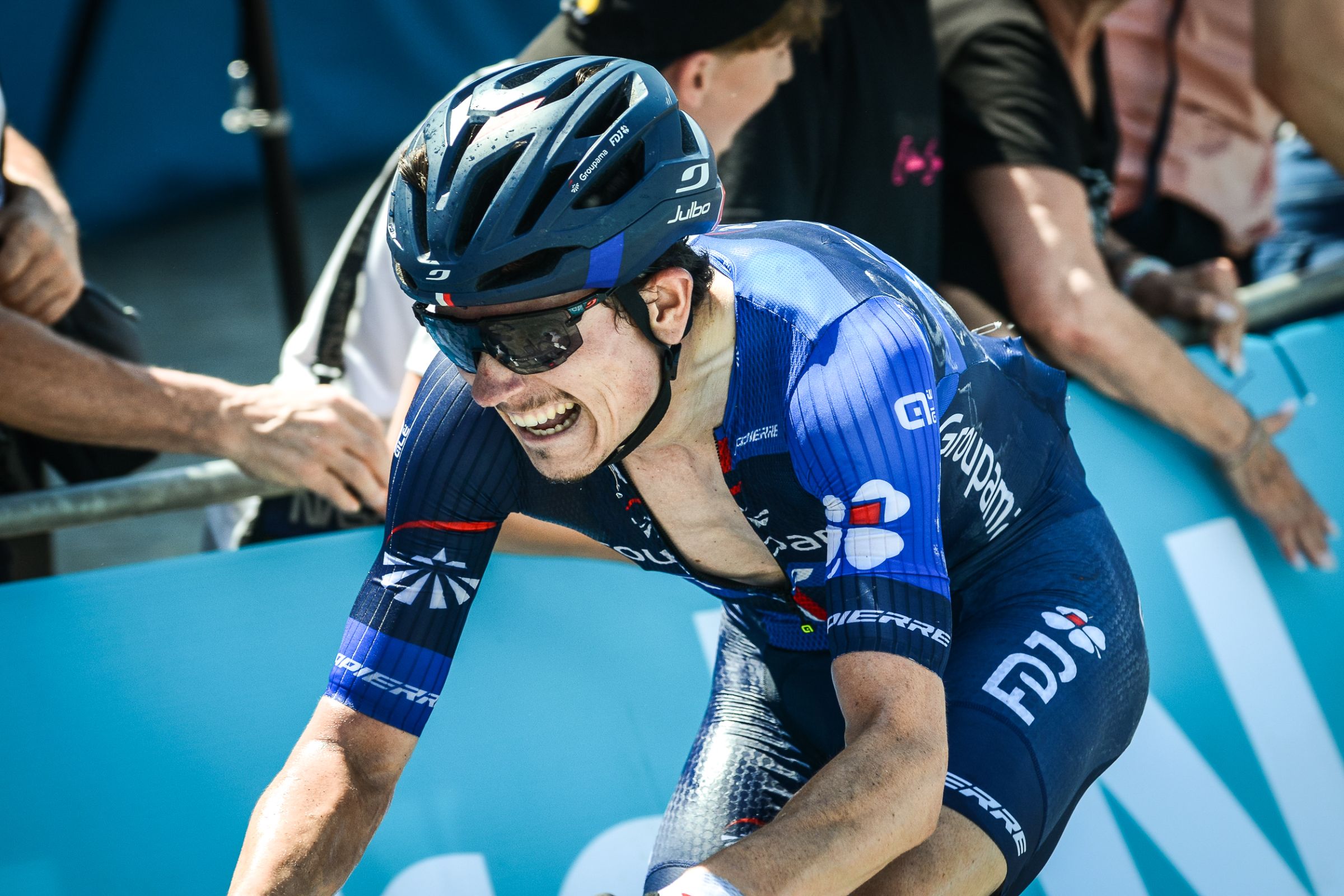
Before seeing you back at the French championship, we left you with a mixed performance on the Critérium du Dauphiné. What did you do in the meantime?
Obviously, the Dauphiné was not easy, either for me or for the team in general. What kind of “reassured” me was to see that Kevin and Valentin, who were with me on the previous training camp, weren’t in their top shape either. I was not alone. At the end of the Dauphiné, we returned to a training camp in altitude, in Tignes, but we first focused on recovery. It was our first real rest since the beginning of our camp in Tenerife. It really did us good. Moreover, our girlfriends were there with us. There were the six of us up there, we did a few picnics, lived our lives and distanced ourselves from the cycling world for a few days. Being together also meant we didn’t ruminate about our performances in the Dauphiné, and we could think about something else. Then, we resumed training quietly and I honestly think it did us good.
Did you realize early on that the Critérium du Dauphiné was going to be difficult for you?
The first stages were still quite hard, but I could count on the rest of the team to protect me as much as possible. That’s why I was even more sorry for them afterwards, because they did a great job. Unfortunately, I fell short when the stages got tough. In the time trial, I had good feelings at the start, then it suddenly let me down. We thought of a heat stroke, but then we saw that I was not in the mix on the following stages. It was hard to accept, but I didn’t want to give up. I always fought as much as I could. On some stages, I could have finished quietly thinking about the next day, but for the team, I really didn’t want to give up on anything. It was important to do it for them because they trust me a lot. On the flat stages, they give everything for me, I’m always on their wheels, so I just can’t throw everything off. They supported me in the most difficult moments, so I wanted to hang on, even if I knew I was at the limit in the mountains. That being said, I put things into perspective and tell myself that I was not really stronger in the Dauphiné last year. I managed to win a stage, but the race’s course was different. The team, the coaches, the performance department also analysed what happened during the training camp and on the Dauphiné. They remotivated us straight away. I trust what they had to say. I was already able to show this weekend that I was in good shape and that I recovered well.
“If you take a slap, you shouldn’t stay on the ground”
Did the Dauphiné sequence affect your confidence?
Actually, the team had the right words at the right time. They continued to trust us and reassure us. I think that was the most important thing. As high-level athletes, we also have a bit of pride, so taking a little slap (or even a big one) from time to time also allows us to question ourselves. Sometimes it’s not so bad before a big objective, and this is what we did after the Dauphiné. When you fail at something, it inevitably impacts your confidence at the time a bit, but then, you have to put things into perspective and start off on the right foot. If you take a slap, to keep going with the metaphor, you shouldn’t stay on the ground. You always have to get up: you take a slap, question yourself and go for it again. When we got back to work, we were maybe even more motivated, and I think that bodes well for the Tour. In such moments, you also try to cling to past performances. We stop for a moment and ask yourself: “ok, how long is it until D-Day?”. You try to look at the bigger picture, to remember that the Dauphiné is the Dauphiné, but that the Markstein is almost six weeks later. You tell yourself that everything can change, but it also kicks up your backside and for me personally, these things are helpful.
On and off the bike, your approach to the Tour could however have been smoother…
I don’t think it’s been the worst year. Last year, I was injured in Paris-Nice, and I only recovered during the May training camp. I had to restart with all the basics, and it was very hard. Then, just when I thought I had returned to a good level on the Dauphiné, I blew up on the last stage. The approach was harder last year physically speaking. However, this year there has been a lot of liveliness on social media. People sometimes didn’t understand what I meant, especially when I wanted to keep my opinion on Thibaut’s selection for the Tour. Plus, I had already said in May that I really wanted Thibaut to be there. I wanted people to stop asking me the question, because I am not the one who makes the team. I wanted to shut it all down. Unfortunately, it was interpreted in the wrong way, and that set some people against me. It was not easy to handle because I’ve been insulted a lot. The good thing is that it really calmed down, and I also want to thank the people who managed to show restraint. It allowed me to spend a more peaceful week after the Dauphiné. Eventually, this is the only thing that really differs from last year in terms of my approach.
“You can’t be liked by everyone”
Do you now feel the whole weight of this fourth place in the 2022 Tour?
It can be that, but I think there are also more expectations after what I achieved in Paris-Nice. People already started to tease me when I was announced as the leader for the Tour last year. I know a lot of people didn’t believe in me. Then, when you finish fourth in the Tour and second in Paris-Nice a few months later, I think you create a lot of expectations. People are disappointed when I fail on the Dauphiné, but I’m the first one to be disappointed. Besides, I want to make clear that the criticisms about my physical level in Dauphiné are totally justified. I don’t blame anyone. I was not in shape, period. Now, I’ll have to show these same people that I will be up there on the Tour. It remains the most important race of the year. You may achieve a great Paris-Nice, a great Tour of the Basque Country, if you fail on the Tour, your whole season is a failure. I realized it even more last year. After my fourth place on the Tour, people told me that I had had a great season. Yet, for me, there was not much apart from the Tour. Last year, I really understood what the Tour could bring to a rider, one way or the other. I know that if it goes wrong on the Tour, my Paris-Nice will be completely forgotten while it is one of the best performances of my career. Either way, the best way to respond to criticism is on the bike and with the legs.
How did you experience this growing reputation, and the criticisms that come with it?
I know that on social networks, like everywhere else, you cannot be liked by everyone. That’s not my goal anyway. My ambition isn’t to become a star, and besides, I hate that word. My goal is not to have notoriety and to have a million followers. When I do things on Twitch for example, that’s more of an escape. As long as I have fun in what I do and people like it, that’s enough for me. Unfortunately, there will always be unhappy people, whether we do something one way or the other. However, I think there are many more caring people who follow me and who are disappointed when I don’t achieve something. In the end, that’s also what’s sad about it: to disappoint people. As in life in general.
“Thibaut taught me everything about cycling […] He is a friend first and foremost”
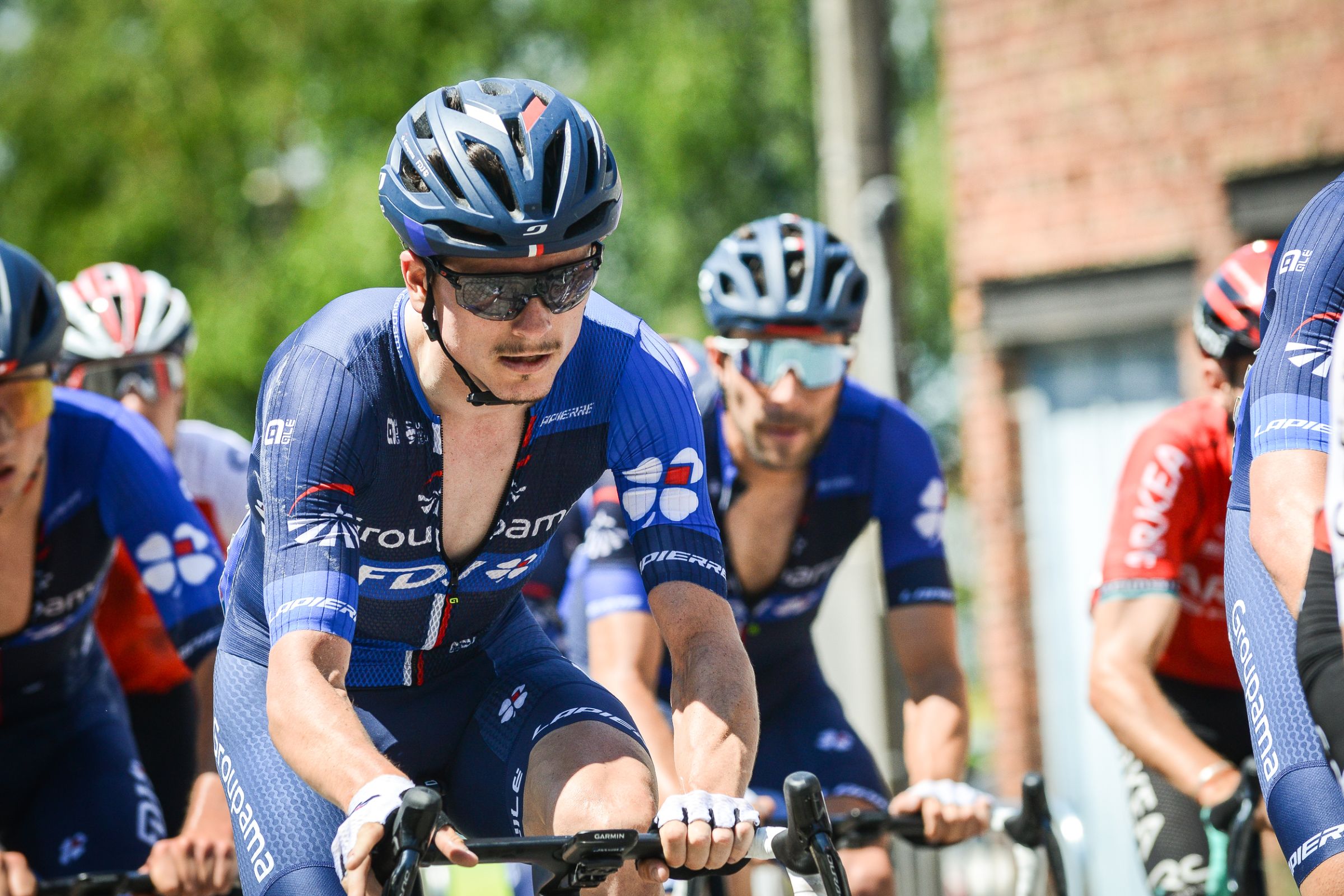
Do you feel you have been pointed out too much as a “bad boy”?
In January, I had my fair part of guilt… And I totally take my responsibility for it. When things are justified, I accept being criticized. I fully accept the consequences for things I’ve done or said, because I know I was the one who started it. On the other hand, when it is unjustified or misunderstood, it bothers me much more because I look like someone haughty and selfish, and I don’t think I’m like that. Some things have unfortunately been created and developed on misunderstandings. That’s what bothered me the most, to be honest. This was hard to accept. Unfortunately, I’m not going to change everyone’s opinion and I can’t answer everyone either.
What’s your reaction when you find yourself mentioned in controversies in the press, on social networks?
When things are baseless, it sucks, especially when it comes to Thibaut. Thibaut is someone I have always given everything for. When I got into the team, he was the leader, and he taught me everything about cycling. He certainly still has things to teach me. When I see press titles, videos, where they oppose us, I’m really mad. I consider Thibaut a friend first and foremost, I love him. I have always given everything for him, and I know that he also can give everything for me. Honestly, it makes me angry when I read this. People see me like that while it is unfounded. It really surprised me that people could believe that I didn’t want him. If we didn’t get along, I don’t know if we could have given so much for each other. Thibaut is someone I respect a lot. Sometimes, I even do things like him, just because I watched everything he did when he was a leader. Thibaut has such a prize record, so you obviously want to learn from him. I laugh about it, but people sometimes say to me: “it looks like Thibaut”. I answer, “well, that’s not a surprise, I went to the Thibaut Pinot school” (laughs).
“What happens in June doesn’t mean anything for July”
Despite the recent events, does the goal for the Tour remain the same?
Yes, it does. Last year, I was far from my own expectations on the Dauphiné, and I went on to take fourth place on the Tour. I also remember that I managed to be at an excellent level in Paris-Nice and to get a top-5 in the Tour of the Basque Country despite average feelings. And then, I really only have the Tour in mind. That’s been on my mind for two months. I just want it to start, to go there, and to be already in the last climb of the first stage to see where I stand. I think what happens in June doesn’t mean anything for July. We are competitors, we always want to improve, so we will go to the Tour de France to compete for the podium. This is the goal I set for myself, and I am ready to give everything I have to achieve it. The team keeps trusting me, Marc has always supported me, and if I don’t believe in it, the riders who’ll ride for me every day won’t believe it either.
The team’s line-up reminds that of last year. Does it relax you, or does it add pressure?
Taking on the role of leader in the Tour de France is obviously a huge responsibility, but we are also lucky to have Thibaut for his last Tour. He just completed a great Giro and will ride with a peace of mind. He has experienced everything on the Tour, and he’ll be a precious ally. Overall, the group has some background. We had some tough days on the Tour last year, we continued to work this year, and I think we also gained experience. This group wants to work together. We can’t wait to ride together and do great things together. I trust each and every one of my teammates, and I am ready to give everything I have to achieve the best Tour possible.
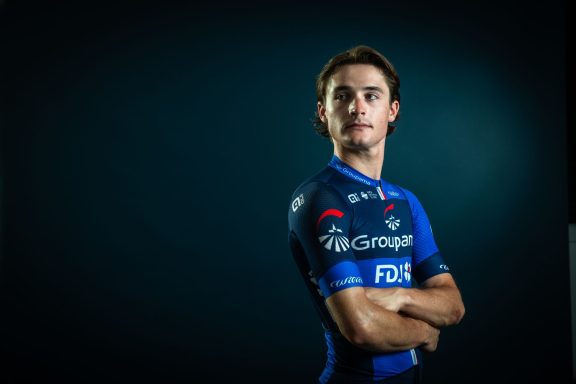
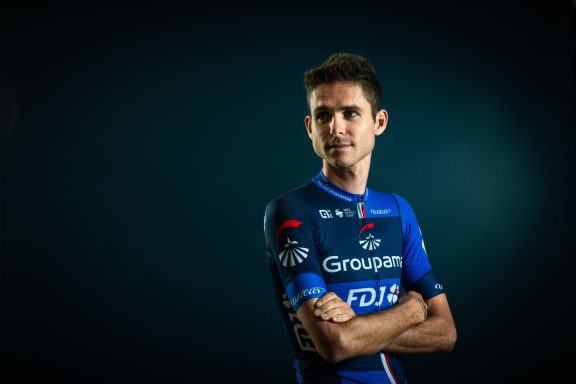
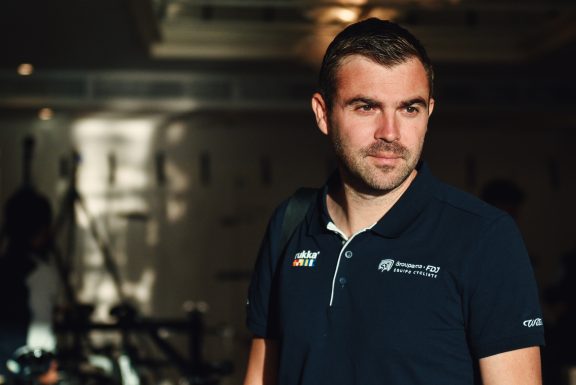
No comment